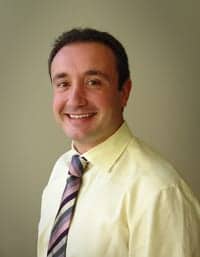The International Society for Cell and Gene Therapy (ISCT) has formed a global consortium of leading professional and educational associations to combat a rise in the number of unproven commercial cell-banking services.
The consortium was formed over concerns about unproven T-cell preservation services, including the banking of T-cells, dental cells, and cells for the derivation of induced pluripotent stem cells for potential therapeutic uses.1
Consortium partners include the American Society for Transplantation and Cellular Therapy (ASTCT), American Society of Gene and Cell Therapy (ASGCT), European Society for Blood and Marrow Transplantation (EBMT), Forum for Innovative Regenerative Medicine (FIRM), Foundation for the Accreditation of Cellular Therapy (FACT), International Society for Stem Cell Research (ISSCR), Joint Accreditation Committee ISCT-EBMT (JACIE), and Society for Immunotherapy of Cancer (SITC).
In a joint statement, ISCT and the consortium partners agreed on a number of key points. Commercial cell-banking services are not supported by current scientific evidence, as opposed to the range of cell therapies such as CAR-T therapies, which follow established approval processes. Additionally, cell banking services cannot claim to know that the cells they preserve today could ever be appropriate for clinical use, could be used by manufacturers, or meet the requirements of many national and international regulatory agencies. As a result, there is no clear pathway to legitimate clinical use. All parties agree that offering these services commercially to patients is premature, misleading, and drives false hope.
In addition, the consortium’s joint statement makes clear that patients, being misled by these services, are prevented from giving full and valid informed consent. Examples of misleading information include ‘tokens of scientific legitimacy’ that suggest a stronger scientific basis than currently exists. Such tokens include endorsements from individuals or scientific advisory boards that might not fully endorse the specific products, links to scientific articles, and references to ongoing clinical trials.
“ISCT’s raison d’être is to lead the industry in supporting scientifically validated cell and gene therapies. As a result, ISCT will continue to welcome all innovations, including cell-banking approaches, that increase the number of patients who can benefit from these therapies,” says Bruce Levine, president-elect of ISCT and one of the inventors of CAR-T therapies.
“However, ISCT also leads industry action on unproven cell therapies and services in the cell and gene sector,” Levine adds. “This is why ISCT has forged a consortium throughout the industry against the marketing of speculative cell-banking services that do not have appropriate preclinical and clinical evidence and a plausible pathway to the clinical use of banked cells. We collectively believe these banks have the potential to be detrimental to the future development of cell and gene therapies.”
For more information, visit the International Society for Cell and Gene Therapy.
Reference
- ISCT issues patient advice and concern on unproven T-cell preservation services [news release, online]. Vancouver, BC, Canada: International Society for Cell and Gene Therapy, 2019. Available at: https://isctglobal.org/news/464648/ISCT-issues-patient-advice-and-concern-on-unproven-T-cell-preservation-services-.htm. Accessed November 26, 2019.
Featured image:
Researcher working with cell culture in cryotube rack stored at –80° C to –150° C for diagnostic and pharmaceutical research. Photo © Panupat Ratanawechtrakul courtesy Dreamstime (lD 127180806).





